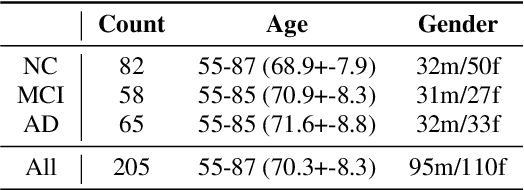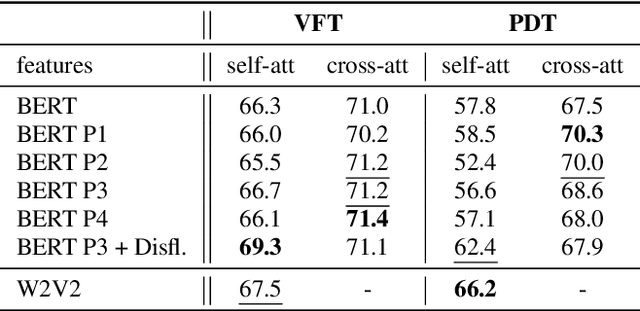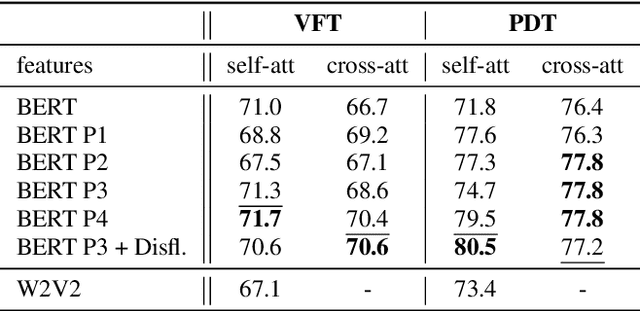Infusing Acoustic Pause Context into Text-Based Dementia Assessment
Paper and Code
Aug 27, 2024



Speech pauses, alongside content and structure, offer a valuable and non-invasive biomarker for detecting dementia. This work investigates the use of pause-enriched transcripts in transformer-based language models to differentiate the cognitive states of subjects with no cognitive impairment, mild cognitive impairment, and Alzheimer's dementia based on their speech from a clinical assessment. We address three binary classification tasks: Onset, monitoring, and dementia exclusion. The performance is evaluated through experiments on a German Verbal Fluency Test and a Picture Description Test, comparing the model's effectiveness across different speech production contexts. Starting from a textual baseline, we investigate the effect of incorporation of pause information and acoustic context. We show the test should be chosen depending on the task, and similarly, lexical pause information and acoustic cross-attention contribute differently.
 Add to Chrome
Add to Chrome Add to Firefox
Add to Firefox Add to Edge
Add to Edge